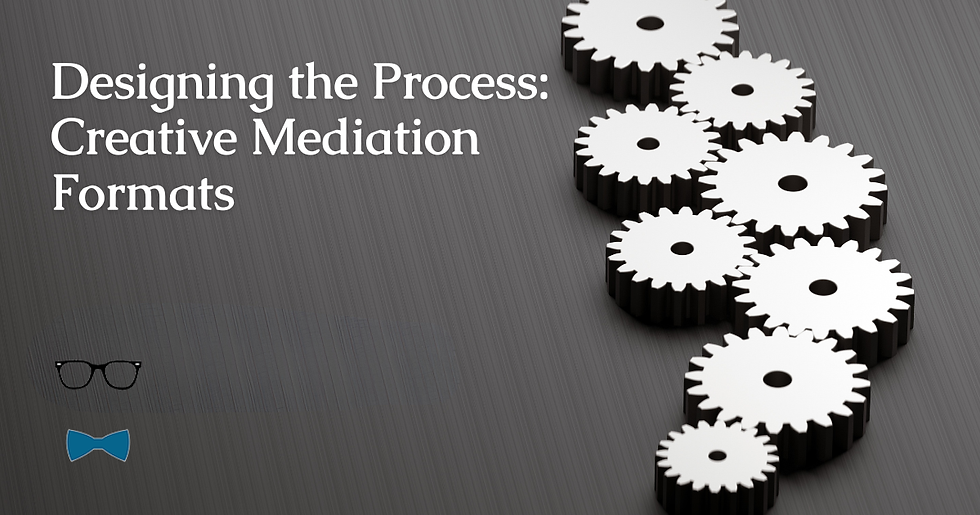Preparing Your Client for Mediation
- Cooper Shattuck

- Feb 6, 2024
- 3 min read

Last time, we talked about preparing yourself for mediation. Today, we discuss preparing your client for mediation.
1. The Client who has never mediated.
Even if you know your client well or have represented them for years, your upcoming mediation may be the first time that your client has ever been involved in a mediation. The time spent preparing your client for the mediation will increase the chances of a successful mediation and a good experience for your client, both of which are good for your relationship.
A detailed explanation of the mediation process is important.
The client needs to understand how and why it is structured as it is. Ideally, this information should be covered by the mediator, but few mediators give any orientation statement anymore. And even if your mediator does, it won’t hurt your client to hear it again, and won’t he be impressed with you when he hears the same thing from the mediator?
You should cover:
The rules, agreement, and court order that cover the process
Confidentiality
The role of the mediator
Logistics – joint sessions, caucuses, etc.
Logistics – how are you all going to participate in the process? In person? Zoom? What is your client’s availability? Mobile number?
You should also cover the specifics of your case.
Review the facts and claims, the strengths and weaknesses, and how to evaluate a settlement. It’s also helpful to review the case from the other side’s perspective. After all, that is what you are going to be dealing with during the course of the negotiations. It isn’t a sign of weakness and doesn’t mean that you have to agree with them, but you must appreciate where they are coming from. It is also helpful to brainstorm through some settlement scenarios. What’s important to your client? Perhaps prioritize what your client hopes to accomplish or gain from a settlement. Then, do the same for the other side. Engaging in these discussions before the mediation will identify potential hot spots that you can share with the mediator beforehand, who will help you during the negotiations.
2. The Client with whom you have never mediated.
Perhaps you have a new client or even one that you’ve represented for a while but have never mediated with. But, they say that they have done a mediation before, or maybe they do them all the time. This doesn’t mean that you are off the hook. You need to discuss how YOU want to handle the mediation or at least what you would recommend from a logistics standpoint. Then, you need to cover those items unique to your case: rules and orders, case evaluation, and a negotiation strategy. Taking this time before the mediation will increase the likelihood of a positive outcome and a positive experience for your client.
3. The Client with whom you mediate regularly.
If you are fortunate to mediate frequently with your client, you may think that any preparation is silly and unnecessary. It’s not. After all, you haven’t mediated this case before. And every case is unique. You need to take the time to discuss or review your case evaluation, strengths, and weaknesses and determine what your client’s interests are (prioritized) right now. They may be different than they were months ago. Perhaps you haven’t mediated with this particular mediator before. It would be helpful to share some insights into his style and background beforehand to speed up the “get to know you” phase of the mediation – which is important in building credibility and trust with your client.






Comments